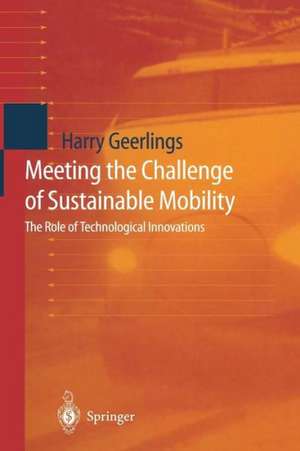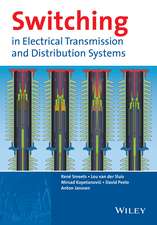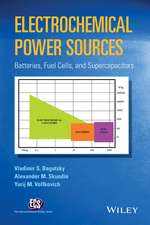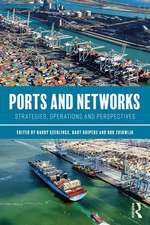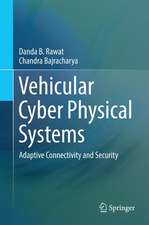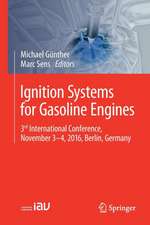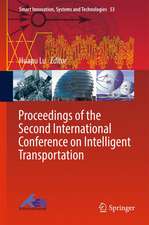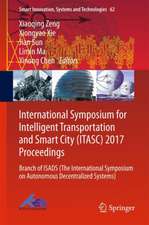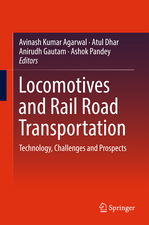Meeting the Challenge of Sustainable Mobility: The Role of Technological Innovations
Autor Harry Geerlingsen Limba Engleză Paperback – 30 sep 2011
Preț: 387.38 lei
Nou
Puncte Express: 581
Preț estimativ în valută:
74.14€ • 77.11$ • 61.20£
74.14€ • 77.11$ • 61.20£
Carte tipărită la comandă
Livrare economică 14-28 aprilie
Preluare comenzi: 021 569.72.76
Specificații
ISBN-13: 9783642642517
ISBN-10: 3642642519
Pagini: 284
Ilustrații: XV, 262 p.
Dimensiuni: 155 x 235 x 15 mm
Greutate: 0.4 kg
Ediția:Softcover reprint of the original 1st ed. 1999
Editura: Springer Berlin, Heidelberg
Colecția Springer
Locul publicării:Berlin, Heidelberg, Germany
ISBN-10: 3642642519
Pagini: 284
Ilustrații: XV, 262 p.
Dimensiuni: 155 x 235 x 15 mm
Greutate: 0.4 kg
Ediția:Softcover reprint of the original 1st ed. 1999
Editura: Springer Berlin, Heidelberg
Colecția Springer
Locul publicării:Berlin, Heidelberg, Germany
Public țintă
Professional/practitionerCuprins
List of tables.- List of figures.- 1 New challenges in technology development: the environmental problem.- 1.1 Introduction.- 1.2 Environmental problems.- 1.3 The scientific response.- 1.4 The structure of this book.- A Theoretical part.- 2 Transport, technology and sustainable development.- 3 The evolutionary theory of technology dynamics.- 4 Policy making in networks and alliances: implications for a sustainable technology policy.- 5 Directing innovations in the transport sector: a synthesis.- B Empirical part.- 6 Exploring trends and ‘weak signals’.- 7 The Maglev-technology.- 8 The Fuel-cell technology.- 9 Some conclusions and reflections.- Annex.- Annex I List of interviewed persons.- Annex II Technology evaluation manual and tables.- Annex III The technology clusters and their impact on the environment.- References.
Textul de pe ultima copertă
This book evolves around technological change and the urgent need, from the perspective of environmental sciences, to reduce the impacts caused by transportation.
It provides insights into the relationship between transport and the environment, the role of technology and the meaning of the concept of sustainable development for the transport sector. Special attention is given to the knowledge gleaned from technology dynamics and the role of the government (in cooperation with the private sector) in generating a sustainability-sound technology policy in transportation.
The different theoretical complexities are combined in a strategy for R&D and the implementation of mega-technological innovations. The result of the strategy is the formulation of a 'Window of Technological Opportunity'.
In the empirical part of the study 2 specific cases are dealt with: Maglev technology and fuel-cell technology for transport purposes. In line with the objectives of the study, and taking into account the new theoretical insights and the empirical findings, a synthesis is presented and conclusions drawn.
It provides insights into the relationship between transport and the environment, the role of technology and the meaning of the concept of sustainable development for the transport sector. Special attention is given to the knowledge gleaned from technology dynamics and the role of the government (in cooperation with the private sector) in generating a sustainability-sound technology policy in transportation.
The different theoretical complexities are combined in a strategy for R&D and the implementation of mega-technological innovations. The result of the strategy is the formulation of a 'Window of Technological Opportunity'.
In the empirical part of the study 2 specific cases are dealt with: Maglev technology and fuel-cell technology for transport purposes. In line with the objectives of the study, and taking into account the new theoretical insights and the empirical findings, a synthesis is presented and conclusions drawn.
Caracteristici
New insights into the relationship between transport and the environment Interdisciplinary approach Includes supplementary material: sn.pub/extras
